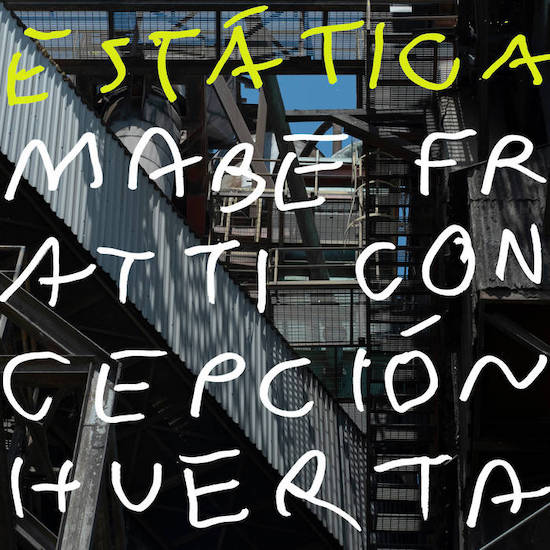There is a trope with experimental music that it has to be harsh to be good. This isn’t true. Some of my favourite experimental music barley gets above a whisper. Estática by Mabe Fratti and Concepción Huerta is a balanced affair. The Mexico City-based experimental duo managed to combine delicate melodies and ideas with destructive swaths of sound in a way that is neither overpowering nor too dainty to be enjoyable.
Estática opens with filagree vocals. They make you stop what you are doing and pay attention. Under this, rumbling synths and atonal stringed instruments create a feeling of disorientation. You get the sense that Fratti and Huerta are building towards something, but they are taking their time. They’re enjoying the process and watching their styles intersect. Around the half-way mark things start to fall away. More abrasive sounds appear, and an underwhelming feeling of destruction is in the air. While ‘Irreversible’ never quite descends into the walls of feedback it hints at, Fratti and Huerta have made their point. While they are very capable of creating glorious melodies, they can also create one hell of a racket. Which will be the more dominate sound will remain to be heard, but I think I can tell where Estática is heading.
‘Mar de Voces’ (‘Sea of You’) is the standout track on Estática. Musically it’s taut, somewhere between a soundscape and a scored piece. The opening cello is menacing, ominous – yet with a thread of hope. There is something mournful about it. Then, from nowhere, Wendy Carlos’s A Clockwork Orange synths appear from nowhere. A dark foreboding has taken over the sorrowful cello. Throbbing electronics now join the fray. The cello is played faster, but this might just be the combination of the electronics, making the organic motifs sound quicker. Around the halfway mark, ‘Mae de Voces’ has descended into base sounds. All melody has vanished. It’s like trying to complete a jigsaw for the first time without looking at the box. You can group certain sections together, but you have no idea how it all forms a cohesive picture.
Through this confusion a voice appears. It reminds me of hiding from a storm in an underpass. The rain was lashing down. The clouds were grey. From nowhere the sun comes out and a blinding ray pieced the gloom. The rain lessened and we made a break for it. Then we got trapped inside a shopping centre, instead of the underpass. There were more options available to us, but we were still trapped. With the appearance of the vocals, we are allowed a respite from the oppressive soundscape Fratti and Huerta have created, but then it engulfs us all over again. It isn’t as bleak as before, but it isn’t a jolly listen. And this is why Estática is a great EP.
Throughout, the EP doesn’t really give you a proper idea of what it’s about. There is a feeling of being overwhelmed by the compositions. But they are also incredibly focused, allowing you to navigate without feeling lost. The titles offer vague allusions, but nothing solid. ‘Resonate Positions’, ‘Static’, and ‘Sea of You’ give you ideas of what is to come. ‘Resonate Positions’ is filled with deep, unrelenting, reverberating sound. ‘Static’ lives up to its name, and ‘Sea of You’ is constantly moving. Sometimes gentle and serene, then raging and crashing against anything in its path. This is the sound of two friends loving working together, pushing each other as far as they can go, but not at the expense of the music. Let’s hope this is the first in a series of releases. Together, Fratti and Huerta have a lot more to say.


